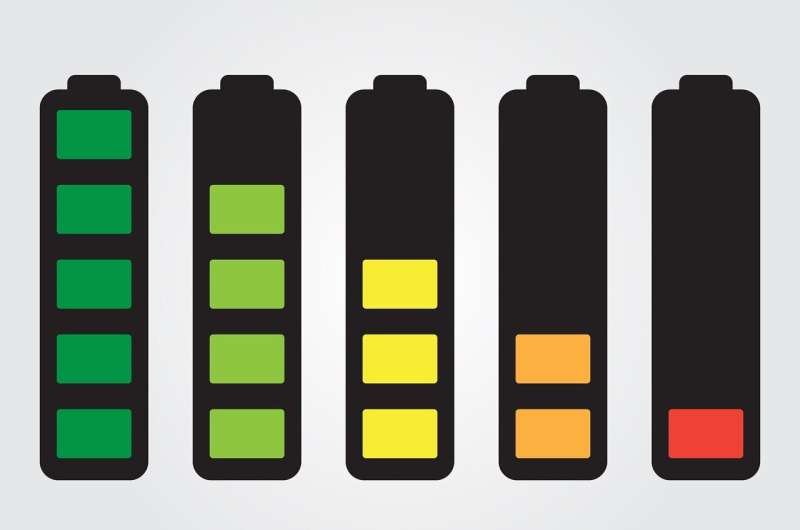
Humanity’s dependence on batteries for cellular phones, laptops, electric vehicles, and grid storage is fueling a demand for better battery technology. For decades, batteries have relied on micro-particles for energy storage, but new research by a team at Rensselaer Polytechnic Institute reveals that using advanced materials that include “multiscale particles” makes for an improved battery, capable of storing more energy, lasting longer, and charging more quickly.
In research published recently in Nature Reviews Materials, a multidisciplinary team of chemical engineers, materials scientists, and mechanical engineers demonstrate that using nanotechnology in batteries will improve battery performance. The paper, entitled “Nano- versus Microstructuring in Battery Electrodes,” compares anodes and cathodes constructed of nano-materials vs. micro-particles and ultimately concludes that a combination of the two—specifically micro-particles that make use of nanostructures—will help batteries meet future energy needs.
“In our view, the next generation of active material particles deployed in future battery systems must be inherently multiscale in nature—that is, they must be micro-sized, yet endowed with nanoscale features or attributes—in order to keep pace with the demand for ever-improving batteries,” says Nikhil Koratkar, the John A. Clark and Edward T. Crossan Professor of Engineering at Rensselaer and corresponding author on this paper.
Dr. Koratkar and his team of researchers, which included doctoral students at Rensselaer and Dr. Chunsheng Wang, professor of chemical and biomolecular engineering at the University of Maryland, began exploring whether there were nanoscale attributes that could be added to traditional-size micro-particles to enhance battery performance. For instance, researchers were able to reduce charging time when they engineered tiny nanoscale tunnels through the micro-particles.
Similarly, when researchers constructed micro-particles with internal nano-porosity, they were able to improve battery longevity without sacrificing columbic efficiency or storage capacity. Applying materials science innovations like these will significantly improve battery performance and inform battery advances going forward, Koratkar concludes.
“I think the next decade will be an era of intense activity and the battery community will successfully figure out how best to construct multiscale particles for superior performing batteries,” says Koratkar.
Rishabh Jain et al, Nanostructuring versus microstructuring in battery electrodes, Nature Reviews Materials (2022). DOI: 10.1038/s41578-022-00454-9
Citation:
Battery materials must evolve to keep pace with societal needs: Study (2022, June 30)
retrieved 30 June 2022
from https://techxplore.com/news/2022-06-battery-materials-evolve-pace-societal.html
This document is subject to copyright. Apart from any fair dealing for the purpose of private study or research, no
part may be reproduced without the written permission. The content is provided for information purposes only.
Stay connected with us on social media platform for instant update click here to join our Twitter, & Facebook
We are now on Telegram. Click here to join our channel (@TechiUpdate) and stay updated with the latest Technology headlines.
For all the latest Technology News Click Here
For the latest news and updates, follow us on Google News.
